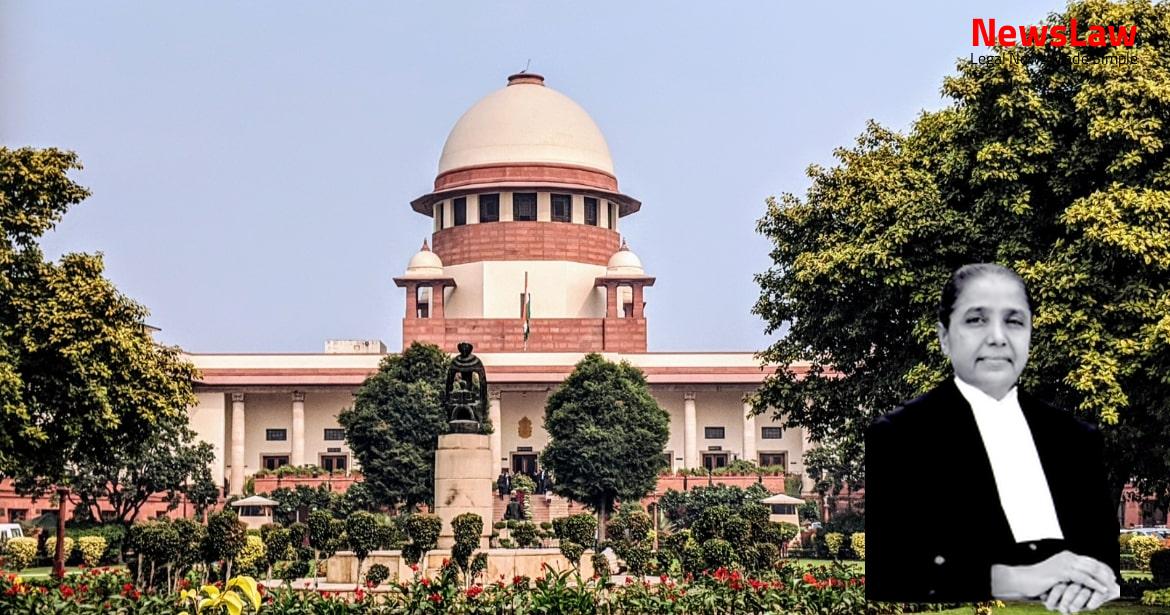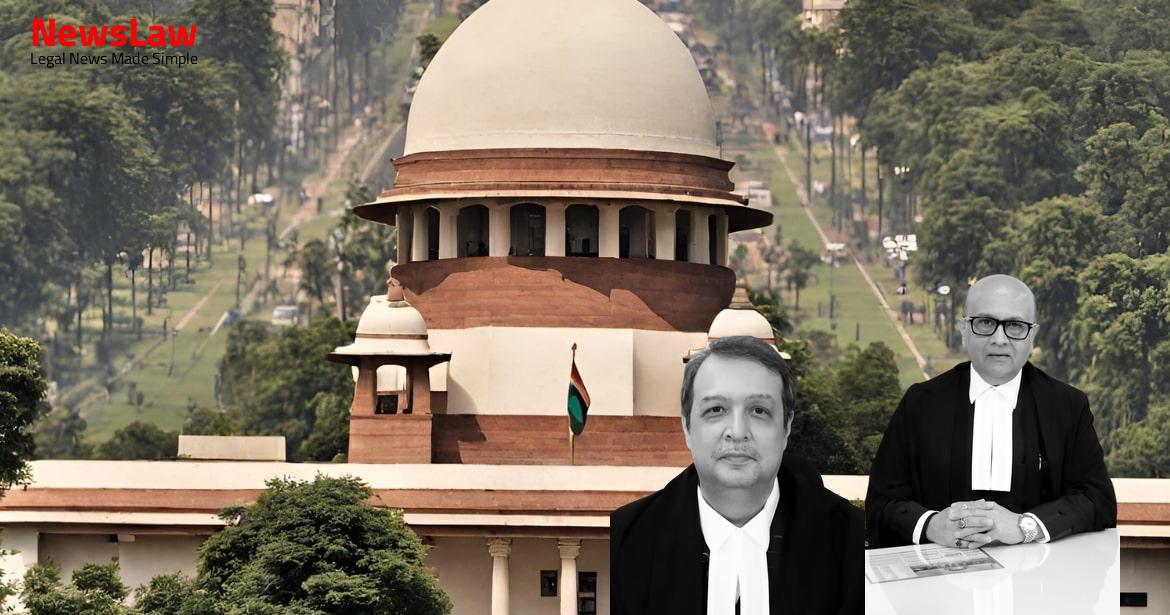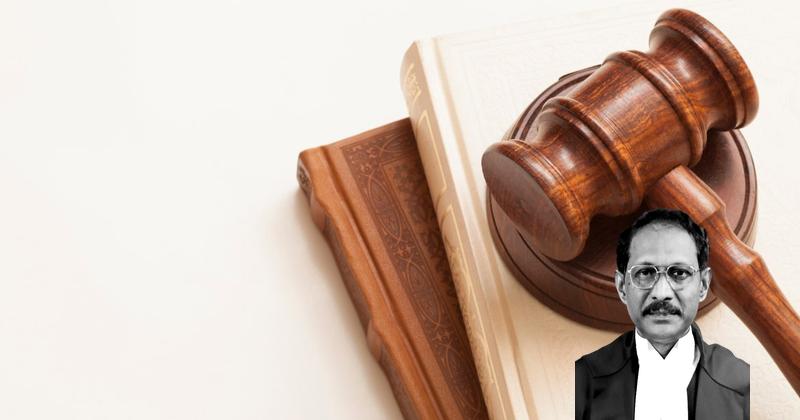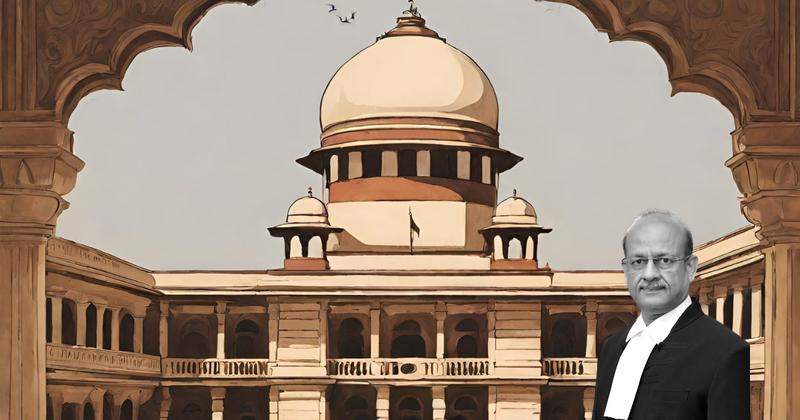In a recent landmark judgment by the Supreme Court of India, the case of Renowned v. State of India has seen significant developments. The appellant’s conviction under Section 302 IPC has been modified to Section 304 Part II IPC. This decision marks a crucial turning point in the legal proceedings, shedding light on the intricacies of criminal law and justice.
Facts
- The trial court convicted the appellant for the murder of his wife under Section 302 IPC.
- The trial court sentenced the appellant to life imprisonment for the same offense.
- The High Court dismissed the criminal appeal filed by the appellant, upholding the conviction and sentence imposed by the trial court.
- None of the witnesses mentioned the presence of PW-7 at the scene of the crime.
- PW-7 claimed he was sleeping on the roof at the time of the incident.
- Anurag was suggested to be a tutored witness in connection with the case.
- FIR No. 205/2010 was filed against the appellant-accused for the alleged murder of his wife.
- The appellant-accused allegedly strangled his wife to death on the rooftop of premises no. C-834.
- The trial was conducted by the Additional Sessions Judge in Delhi.
Also Read: Quash Petition Dismissed: Case Summary of accused nos. 5 to 7
Arguments
- Learned counsel for the appellant argued that it was a normal quarrel between the husband and wife which escalated when the wife attempted to forcibly take money from his pocket.
- The notice issued by the Court was limited to the punishment and quantum of sentence.
- Arguments were presented by Sri Shikhil Suri, learned counsel for the appellant, and Ms. Pinky Anand, learned Additional Solicitor General for the respondent-State.
- The appellant’s counsel contended that based on the facts and evidence, there is no case for convicting the appellant under Section 302 IPC.
- The appellant’s submission was that in a fit of anger and under the influence of liquor, he picked up a ‘saria’ to harm his wife, without any intention to kill her or premeditation.
- It was argued that the appellant did not have the intent to cause death, nor did he realize that his actions during the sudden fight would result in her death.
- The appellant is accused of strangulating his wife with a ‘saria’ leading to her death.
- The act of using a ‘saria’ to forcefully compress his wife’s neck cannot be considered as an act of anger.
- Reference to Exception 4 to Section 300 IPC is made, contending that all four ingredients of the exception apply to the case.
- The argument is made that the High Court’s finding, stating that two ingredients of Exception 4 are not present, contradicts the evidence on record.
- The Additional Solicitor General for the State argues that it is a clear case of murder supported by key witnesses.
Also Read: Hyatt Hotel vs. The State of India: Corporate Liability and Vicarious Responsibility
Analysis
- The High Court found that two of the ingredients necessary for Exception 4 to Section 300 IPC were absent in the case of the appellant.
- The strangulation with the ‘saria’ was deemed extremely cruel by the High Court, negating the plea for Exception 4 to Section 300 IPC.
- The act of strangulation was not considered extremely cruel as it was deemed to be committed in a heat of passion by the appellant.
- Witness testimonies confirmed the appellant’s presence at the scene and his act of strangulation, leading to the High Court’s confirmation of the trial court’s conviction.
- The High Court rejected the plea that the incident occurred in a fit of anger and under the influence of alcohol, as two ingredients of Exception 4 were found missing.
- The use of the ‘saria’ in the sudden fight and the lack of premeditation supported the classification of the case under Exception 4 to Section 300 IPC.
- The prosecution successfully proved the case against the appellant beyond a reasonable doubt based on witness accounts and evidence found at the scene of the crime.
- Knife blows were inflicted in the heat of the moment
- One of the knife blows caused the death of the deceased
- Accused is entitled to the benefit of Exception 4
- Judgment in the case of Surinder Kumar v. Union Territory, Chandigarh supports the case of the appellant
- In a sudden quarrel with no premeditation, the act of the appellant-accused falls under Exception 4 to Section 300 IPC.
- If a person, in the heat of the moment during a sudden quarrel, picks up a handy weapon and causes injuries, the accused is entitled to the benefit of Exception 4.
- The judgment in a previous case supports the appellant’s case.
- All four required ingredients to extend the benefit of Exception 4 to Section 300 IPC apply to the facts of the case.
Also Read: Land Acquisition Dispute: The Road Construction Case
Decision
- The conviction recorded against the appellant under Section 302 IPC is set aside
- The conviction of the appellant-accused under Section 302 IPC is modified to Section 304 Part II IPC
- A sentence of 10 years’ simple imprisonment is imposed on the accused
- The appeal is partly allowed
- The conviction and sentence imposed on the appellant are modified as indicated above
Case Title: RAMBIR Vs. STATE OF NCT DELHI
Case Number: Crl.A. No.-000839-000839 / 2019



